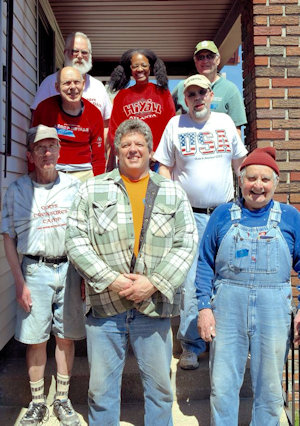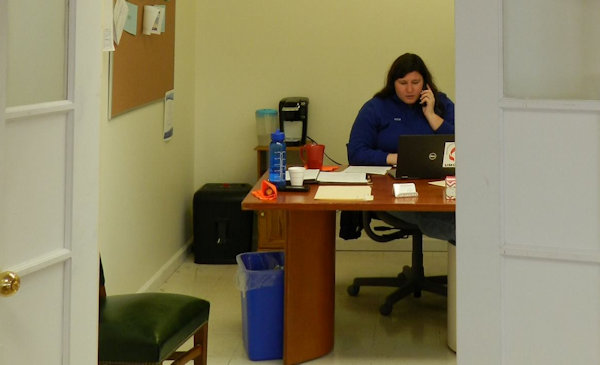The 2014 flooding in Detroit is called a “low attention” disaster but “quiet” help has made a difference.
SUSAN KIM
United Methodist Committee on Relief
August 18, 2016 — Your contribution to the United Methodist Committee on Relief (UMCOR) is helping disaster survivors across the nation recover from events that never made the headlines.
How does UMCOR stretch your “disaster dollar” to quietly bring hope to countless people and their families? And what is a “low-attention disaster?” It often means that there is little financial assistance and volunteer labor for people most in need, said Catherine Earl, a disaster response program manager for UMCOR.
“It is possible, however, to turn a low-attention disaster into a highly meaningful recovery for survivors through the dedicated efforts of the church in partnership with UMCOR,” Earl said.
In McGehee, Arkansas, long-term recovery is just beginning after March 2016 storms damaged hundreds of homes, and the area needs repair teams. “We have 233 on our list requesting assistance,” reported Byron and Janice Mann, disaster response coordinators for the Arkansas Conference — yet very few people across the nation are even aware.
The same situation happens in an urban setting. Torrential rains hit Detroit in 2014. Today at least 25 families — some of them waiting for two years — need experienced teams of volunteers to hang drywall, put down floor tile, or muck out basements.
Volunteers help UMCOR reach more for less money. “Every dollar can be stretched because of the help of volunteers who are willing to go where there is little or no media attention,” said Earl.
Recovery in these and other communities across the nation depends on volunteers showing up.

Few few people outside of Wyoming heard about the devastating hailstorm that struck Pine Bluff three weeks ago. Out of 580 homes in the community, 493 had substantial damage, said Bob Stowe, Wyoming district disaster response coordinator. “The hail was between ping-pong-ball and tennis-ball size. Every south-facing window in structures was broken out. The vinyl siding on houses was shattered and roofs were destroyed. A lot of cars were totaled.”
People in Wyoming are also recovering from flash floods in Lusk, wildfires in several other areas of the state, and more flooding near Riverton and Lander. More than 100 homes have been affected but no one is hearing about them, said Gary Haddock, a disaster response coordinator for the Rocky Mountain Conference. Yet UMCOR is supporting recovery in all these areas. “As UMCOR, we are honored to go and help wherever help is needed, even if no one else in the country knows about it,” he said.
Across the nation, conference disaster responders help stretch recovery dollars by partnering with other organizations. In Florida, responders are working in a small community in North Escambia, which was hit by tornadoes in February. Through a National Voluntary Organizations Active in Disaster (VOAD) connection, the Florida Recovery Team is working with the HOPE Animal-Assisted Crisis Response (ACCR), an organization that assists disaster survivors with emotional care through the use of therapy dogs.
Service dogs and their handlers met with children at the Camp Fire Century Youth Learning Center and then had personal visits with two other children. “Knowing that some of the children in the community continue to struggle every time a storm comes to town, I believe this is a really fun way to help them open up and begin discussing their feelings and fears,” said Lynn Dobry, executive coordinator for the Florida Recovery Team (Alabama-West Florida Conference). Partnerships such as this help the United Methodist Church to provide holistic care, extend our reach, and make best use of donor dollars.
So, how do disaster responders focus when working in a community that’s receiving seemingly little attention? They focus on the people, said Forrest White, a disaster recovery manager in the Virginia Conference. At least eight tornadoes touched down in southern and southeastern Virginia in February 2016, and hundreds of people are in the throes of a long-term recovery.
“We try to focus on the survivors, and try to serve them as God calls us to do,” he said.
All disaster survivors deserve your help and prayers. Please give to UMCOR U.S. Disaster Response, Advance Special 901670.
Last Updated on December 8, 2023

